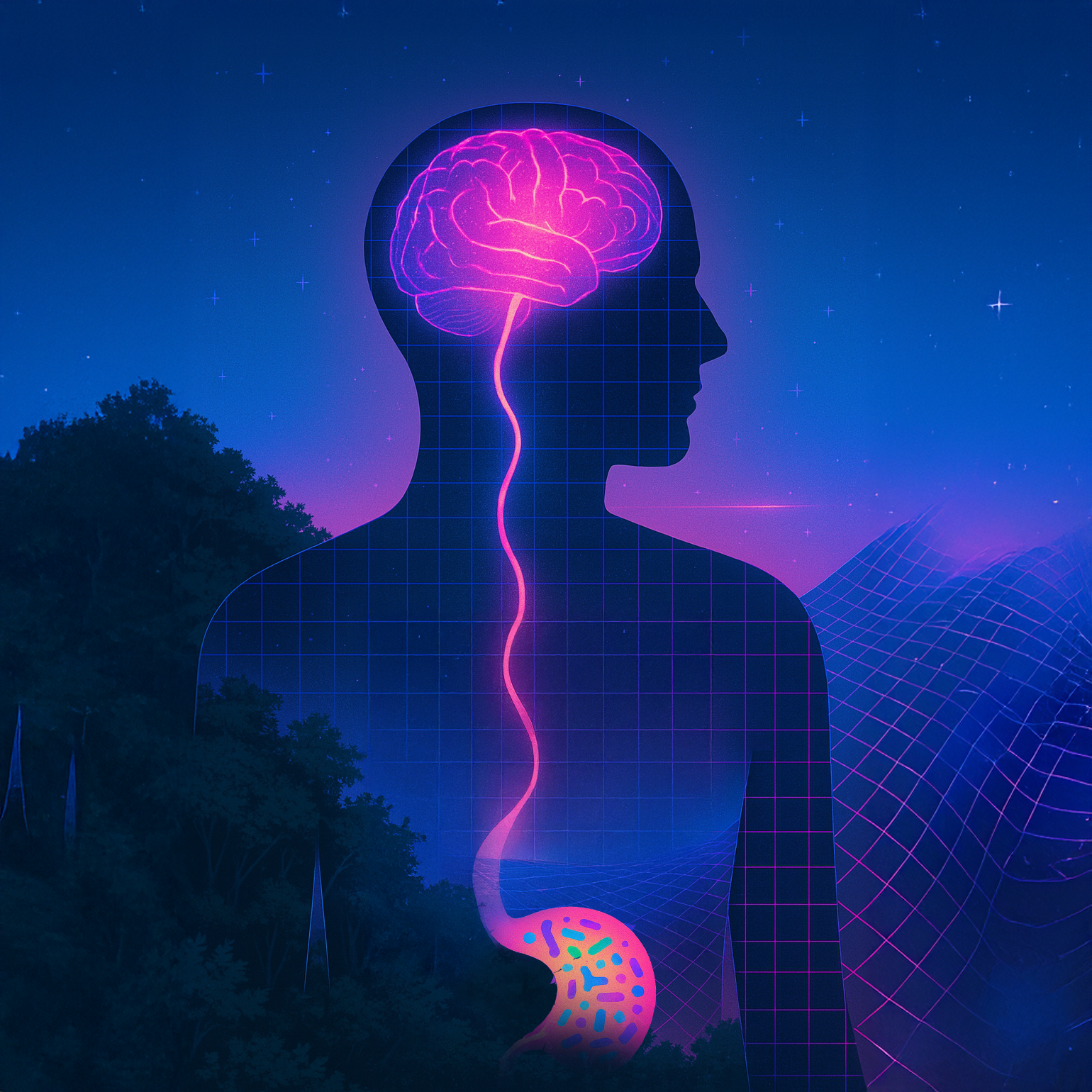Could the Microbiome Be What Set Us Apart?
We often credit human evolution to our large brains, upright posture, or tool use. But what if something more subtle helped unlock our cognitive leap?
What if the real shift, the one that let us step beyond instinct - began in the gut?
A Different Kind of Brain
The microbiome isn’t just about digestion. It’s a full ecosystem inside us, constantly interacting with the brain. It sends signals through neurotransmitters like serotonin, around 90% of which is produced in the gut, as well as hormones and the vagus nerve. Some people call it the second brain, but I think that undersells it.
Maybe it’s the first brain. The one that drove our emotions and survival behaviors long before conscious thought ever showed up.
And here's the idea I keep coming back to:
What if we didn’t evolve beyond instinct despite our biology, but because our internal ecosystem became complex enough to support a new kind of communication with the brain?
The Real Trigger: Movement
One of our biggest evolutionary advantages wasn’t just intelligence - it was mobility.
We were one of the only early mammals that could survive outside our native environment. While our primate cousins were largely confined to the stable diet of a single ecosystem, we weren’t. We roamed. We adapted. We started to eat from forests, plains, coastlines, and deserts. And that movement exposed us to new bacteria, fungi, minerals, and nutrients.
That exposure built a stronger microbiome. We weren’t just feeding ourselves, we were feeding the bacteria and microbes inside us. The more environments we could survive in, the more diversity we gained. And the more diverse our internal ecosystem became, the more stable and flexible our emotional and mental signaling grew.
That adaptability may have been what made our gut–brain connection stronger, and ultimately, what helped us become who we are. Our diversity makes us stronger.
Gut Imbalance and Craving
Anyone who struggles with addiction or impulse control knows that some urges don’t respond to logic. You can be fully aware that something is harmful and still feel powerless to resist it.
That’s not weakness. That’s imbalance. It’s a signal you can’t override, something deeper than logic.
Animals are almost entirely reactive. They follow hunger, fear, comfort. They don’t step back and analyze. But some humans can. Some of us have that small pause between feeling and action, a space to reflect. But not everyone does. And even those who do don’t always have it consistently.
Personally, I don’t think my gut health has been right for years. I’ve dealt with impulse control my whole life. But my brain allows me to reason, which gives me a space to stop and think. That space feels like a privilege. It’s not something you can take for granted, especially when the internal signals are overwhelming.
This makes me believe that logic and reasoning didn’t replace instinct. They evolved alongside it.
The Second Dual Framework
Just like too much negative gut bacteria can push someone into constant stress or craving, too much logic can disconnect someone from their instincts. Both systems are powerful, but they weren’t meant to dominate each other. They’re supposed to work in balance.
For centuries, our thinking has been dominated by a kind of 'First Dual Framework', the Cartesian idea that the logical mind is separate from, and must conquer, the flawed, instinctual body. This sets up an internal war we can never win. But what if that’s the wrong model entirely?
This is what I see as the Second Dual Framework, a model of human development where body and mind grow in symbiosis.
The gut and microbiome send signals about the world, guiding emotion and instinct.
The brain receives those signals, builds reasoning pathways, and learns to reflect.
This isn’t about logic winning. It’s about building a partnership, one where each system informs and stabilizes the other. It’s about tuning ourselves, not overriding one part to serve the other.
Maybe what set us apart wasn’t just our brain size or tools. Maybe it was the conversation that started between the body and the mind, the one we’re still trying to listen to.
And maybe when we feel off, stuck, or pulled in too many directions, it’s not that we’re broken. It’s that the conversation has been lost.

